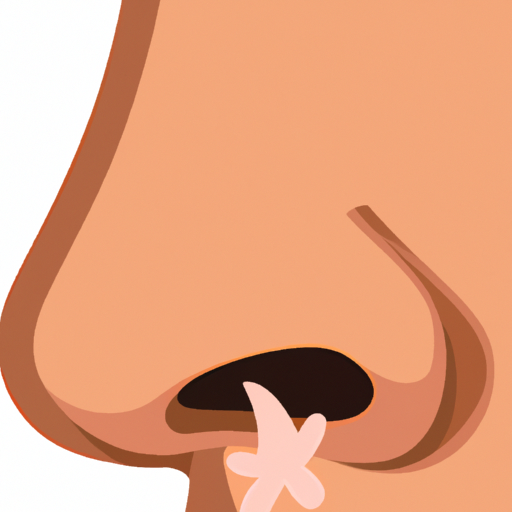Rhinitis, a condition characterized by inflammation of the nasal mucosa, can significantly impact an individual's quality of life. From the bothersome symptoms it presents to the various causes that trigger its onset, understanding rhinitis is crucial for proper diagnosis and treatment. In this article, we will delve into the intricacies of rhinitis, exploring its causes, symptoms, and how to effectively diagnose the condition. Additionally, we will provide a comprehensive guide to the treatment approaches available for rhinitis, offering insights into managing nasal mucosa inflammation for a better quality of life. Whether you have been personally affected by rhinitis or are simply curious about this common condition, this article will equip you with the knowledge necessary to navigate rhinitis and find relief.
1. Understanding Rhinitis: Unraveling the Causes, Symptoms, and Diagnosis
Rhinitis is a common condition characterized by inflammation of the nasal mucosa, which is the lining inside the nose. It is often referred to as a runny or stuffy nose and can significantly impact an individual's quality of life. Understanding the causes, symptoms, and diagnosis of rhinitis is crucial for effective management and treatment.
There are several factors that can contribute to the development of rhinitis. Allergic rhinitis, also known as hay fever, is one of the most common forms. It occurs when the immune system overreacts to allergens such as pollen, dust mites, pet dander, or mold spores. Non-allergic rhinitis, on the other hand, is not triggered by allergens but may result from irritants like smoke, strong odors, or changes in weather. Hormonal imbalances, certain medications, and structural abnormalities in the nose can also lead to rhinitis.
The symptoms of rhinitis can vary from person to person and may include sneezing, nasal congestion, itching, a runny nose, and postnasal drip. These symptoms can significantly affect daily activities, sleep patterns, and overall well-being. In some cases, rhinitis may also lead to other complications such as sinusitis or ear infections.
To diagnose rhinitis, healthcare professionals typically start by conducting a thorough medical history and physical examination. They may inquire about the duration and frequency of symptoms, potential triggers, and any associated medical conditions. Allergy testing, such as skin prick tests or blood tests, can help identify specific allergens responsible for allergic rhinitis. Additionally, nasal endoscopy, imaging studies, or nasal cytology may be utilized to evaluate the nasal passages and rule out other possible causes.
Once diagnosed
2. Effective Treatment Approaches for Rhinitis: A Comprehensive Guide
Effective Treatment Approaches for Rhinitis: A Comprehensive Guide
Rhinitis, characterized by inflammation of the nasal mucosa, can have a significant impact on an individual's quality of life. It presents with a variety of symptoms, such as nasal congestion, sneezing, itching, and a runny nose. Additionally, it can be caused by various factors, including allergies, infections, irritants, and structural abnormalities. To effectively manage and alleviate the symptoms of rhinitis, it is crucial to adopt a comprehensive treatment approach. This article provides a comprehensive guide to the most effective treatment strategies for rhinitis.
1. Identification of Triggers:
The first step in treating rhinitis is to identify and avoid triggers that can exacerbate symptoms. Allergic rhinitis, for example, can be triggered by pollen, dust mites, pet dander, or certain food items. By identifying and minimizing exposure to these triggers, individuals can experience a significant reduction in symptoms.
2. Medications:
Medications play a vital role in the management of rhinitis, particularly in cases where trigger avoidance is not possible or insufficient. There are several types of medications available, including:
- Antihistamines: These medications work by blocking the effects of histamine, a chemical released during an allergic reaction. Antihistamines can effectively relieve symptoms such as itching, sneezing, and runny nose.
- Decongestants: Decongestants help reduce nasal congestion by constricting blood vessels in the nasal passages. However, these medications should be used cautiously and for a limited duration, as long-term use can lead to rebound congestion.
- Nasal corticosteroids: These sprays contain corticosteroids that reduce inflammation in the nasal passages.
3. Navigating Rhinitis: Managing Nasal Mucosa Inflammation for Better Quality of Life
Rhinitis, a condition characterized by inflammation of the nasal mucosa, can significantly impact an individual's quality of life. From bothersome symptoms to hindrances in daily activities, rhinitis can disrupt one's overall well-being. However, with proper diagnosis, effective treatment options, and a few lifestyle adjustments, individuals can navigate rhinitis and manage nasal mucosa inflammation for a better quality of life.
Diagnosing rhinitis involves a comprehensive evaluation of the patient's medical history, physical examination, and sometimes additional tests. The healthcare provider will inquire about the nature and duration of symptoms, potential triggers, and any family history of allergies or respiratory conditions. A thorough examination of the nasal passages, throat, and upper respiratory tract may also be conducted to assess any signs of inflammation or nasal polyps.
Once diagnosed, treatment options for rhinitis aim to alleviate symptoms and reduce inflammation. These may include pharmacological interventions, lifestyle modifications, and allergen avoidance strategies. Nasal corticosteroids are commonly prescribed to reduce nasal inflammation and alleviate symptoms such as nasal congestion, sneezing, and itching. Antihistamines can help manage allergic rhinitis symptoms by blocking the effects of histamine, a chemical mediator involved in allergic reactions.
For individuals with persistent or severe symptoms, allergen immunotherapy may be recommended. This treatment involves the administration of gradually increasing doses of specific allergens to desensitize the immune system. Over time, this can reduce the body's allergic response and alleviate rhinitis symptoms.
In addition to medication, certain lifestyle modifications can help manage rhinitis symptoms and improve quality of life. These include practicing good nasal hygiene, such as regularly rinsing the nasal passages with saline solutions to remove irritants and allergens. Humidifying indoor air can

